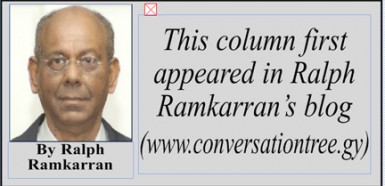
The main basis for recusals by judges (or other adjudicators, including magistrates) is actual or potential bias or the appearance thereof. It is in the Judge’s discretion to do so. As far back as 1972 in the libel appeal of Jagan v Burnham in Guyana’s Court of Appeal, the then Chancellor of the Judiciary, E V Luckhoo, rejected an application by Dr Fenton Ramsahoye, appearing for Janet Jagan, to recuse himself on the ground that his brother, Lionel Luckhoo, was appearing for Burnham.
During the 1980s Justice Claude Massiah was asked to recuse himself from a murder case against
